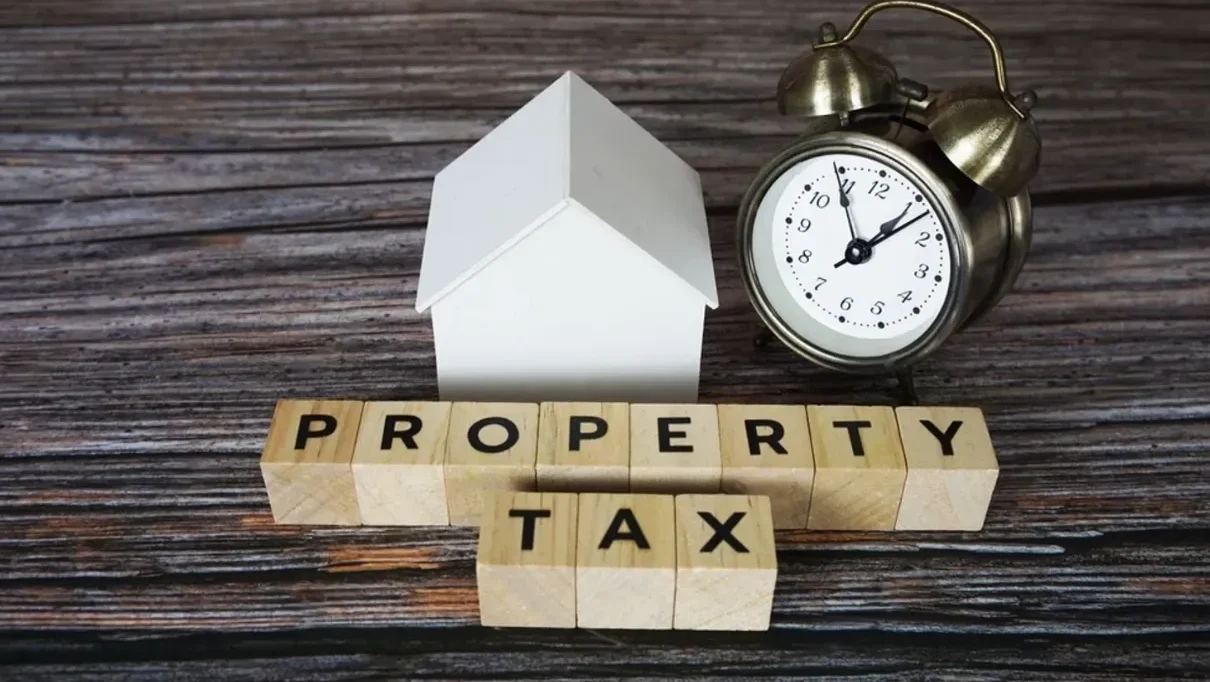
Property taxes are a significant expense for homeowners, business owners, and real estate investors, often representing one of the largest annual costs associated with property ownership. If your property is overvalued by your county appraisal district, you could be paying more than your fair share. Filing a property tax protest is a powerful way to challenge an unfair assessment and reduce your tax bill, but timing is critical. Most appraisal districts impose strict deadlines—typically 30–45 days after receiving your appraisal notice or by May 15 in some states—and missing these deadlines can lock you into an inflated tax bill for the year. This comprehensive guide explains why timely property tax protest filing is essential, the consequences of missing the deadline, and practical steps to ensure you act on time to maximize your savings.
Why Timely Filing Matters
Property taxes are based on the assessed value of your property, as determined by your local appraisal district. This value is meant to reflect the fair market value—what your property would sell for under normal conditions. However, appraisal districts can make errors, such as overestimating your property’s value, misclassifying features, or failing to account for issues like structural damage. These mistakes can inflate your tax bill significantly. For example, if your home is assessed at $500,000 but should be $450,000, a 2.5% tax rate means you’re overpaying by $1,250 annually.
Filing a protest on time allows you to challenge these errors and secure a lower, fairer assessment. However, appraisal districts enforce strict deadlines to ensure the tax roll is finalized efficiently. Missing the deadline typically means you can’t protest until the next tax year, leaving you stuck with an unfair tax bill for the current year. Timely filing is your opportunity to protect your finances and ensure you’re taxed equitably.
The Consequences of Missing the Protest Deadline
Failing to file your property tax protest by the deadline has several significant consequences:
- Locked-In Overpayment: If your property is overvalued, you’ll pay higher taxes for the entire year. For high-value properties, this could mean thousands of dollars in unnecessary costs.
- Lost Savings Opportunities: A successful protest can reduce your assessed value, saving you money not just this year but in future years, as districts often base subsequent valuations on prior assessments.
- Limited Recourse: Most appraisal districts offer no formal protest options after the deadline, though you may be able to request corrections for clerical errors or apply for exemptions (see below).
- Penalties for Non-Payment: If an inflated tax bill strains your budget, delaying payment past the due date (typically January 31) can lead to penalties (e.g., 6–12% plus interest).
- Missed Momentum: Protesting regularly keeps your assessment in check. Missing a year can allow overvaluations to compound, making future protests harder.
Example: A commercial property assessed at $2 million, but worth $1.8 million, could cost an extra $6,000 annually at a 3% tax rate if the deadline is missed. Filing on time could have corrected this, saving thousands.
Key Benefits of Timely Protest Filing
Filing your property tax protest on time offers several advantages that can save you money and reduce stress:
1. Opportunity to Correct Overvaluations
Timely filing gives you access to the full protest process, including informal reviews with appraisers and formal Appraisal Review Board (ARB) hearings. You can present evidence—like comparable sales, property damage photos, or appraisal errors—to argue for a lower value. A successful protest directly reduces your tax bill.
Example: Reducing a $350,000 assessment by $30,000 at a 2% tax rate saves $600 annually.
2. Access to Exemptions and Deductions
Filing a protest often prompts a review of your property’s record, which can uncover unclaimed exemptions, such as homestead, senior citizen, or veteran exemptions. These can further lower your taxable value, compounding your savings. Some exemptions have separate deadlines, but addressing them during a protest ensures they’re applied correctly.
Example: A homestead exemption of $25,000 plus a $20,000 protest reduction saves $1,100 at a 2.5% tax rate.
3. Protection Against Future Overvaluations
A successful protest sets a precedent for future assessments, as appraisal districts often use prior values as a baseline. Filing on time keeps your valuation fair year after year, preventing creeping overassessments.
4. Avoidance of Penalties and Stress
By filing on time and potentially lowering your tax bill, you reduce financial strain and avoid penalties for late tax payments. The protest process also gives you a sense of control, reducing the stress of feeling overtaxed.
5. Opportunity for Professional Representation
Filing on time allows you to hire a property tax consultant, who can manage the process and increase your chances of success. Many consultants work on contingency, charging only if they reduce your taxes, making timely filing a low-risk investment.
Steps to Ensure Timely Protest Filing
To avoid missing the protest deadline and maximize your chances of success, follow these practical steps:
1. Review Your Appraisal Notice Immediately
Your appraisal notice, typically mailed in the spring, includes your property’s assessed value, exemption details, and the protest deadline. Review it as soon as you receive it to:
- Check for errors (e.g., wrong square footage, missing exemptions).
- Compare the assessed value to recent sales of similar properties using tools like Zillow, Redfin, or your county’s property search portal.
- Note the protest deadline, usually 30–45 days from the notice date or May 15.
Action Tip: Set a calendar reminder for the deadline and start gathering evidence if the value seems high.
2. Understand the Deadline and Process
Confirm the exact deadline with your appraisal district, as it varies by state and county. Some districts allow filing by a fixed date (e.g., May 15), while others tie it to the notice date. Familiarize yourself with the protest process:
- Obtain the protest form from the district’s website or office.
- File online, by mail, or in person, ensuring submission before the deadline.
- Pay any small filing fee, if required (often $10–$25, sometimes waived).
Action Tip: Visit your appraisal district’s website for a protest guide or FAQ. Contact their office with questions about forms or deadlines.
3. Gather Evidence Early
A strong protest requires evidence that your property is overvalued. Start collecting data as soon as you receive your notice:
- Comparable Sales: Find 3–5 recent sales (within 6–12 months) of similar properties that sold for less than your assessed value.
- Property Issues: Document conditions that lower your value, like foundation cracks or outdated fixtures, with photos and repair estimates.
- Appraisal Errors: Identify mistakes in the district’s records, such as incorrect lot size or misclassified features.
Action Tip: Organize evidence in a binder or digital folder, including a table comparing your assessed value to comps’ sale prices.
4. File Your Protest Promptly
Submit your protest form well before the deadline to avoid last-minute issues like technical glitches or mail delays. Include:
- Your property’s account number and details.
- The reason for your protest (e.g., “market value too high” or “unequal appraisal”).
- Supporting evidence, if required at filing (some districts allow evidence later).
Action Tip: Keep a copy of your protest form and submission confirmation (e.g., email receipt or postmark) as proof of timely filing.
5. Consider Hiring a Property Tax Consultant
If you’re worried about missing the deadline or navigating the process, a property tax consultant can ensure timely filing and a strong case. They offer:
- Deadline Management: Filing your protest accurately and on time.
- Expert Evidence: Access to robust sales data and local market insights.
- Hearing Representation: Presenting your case professionally at the ARB hearing.
- Contingency Fees: Many charge only if they reduce your taxes, minimizing risk.
Action Tip: Choose a consultant with local experience and positive reviews. Contact them early to allow time for case preparation.
6. Prepare for the Protest Process
After filing, you’ll either attend an informal review with an appraiser or proceed to an ARB hearing. Prepare by:
- Practicing a 2–3 minute summary of your case, focusing on your strongest evidence.
- Organizing your evidence clearly for presentation.
- Reviewing your district’s hearing procedures online.
Action Tip: Schedule any informal review or hearing as soon as possible to stay on track.
What If You’re At Risk of Missing the Deadline?
If you’re nearing the deadline and haven’t filed, take these urgent steps:
- File a Basic Protest: Submit the protest form with minimal evidence, stating “market value too high.” You can often submit additional evidence later.
- Use Online Filing: Many districts offer online portals, which are faster than mail or in-person submissions.
- Contact the District: Call to confirm the exact deadline and ask about same-day filing options (e.g., drop-off at the office).
- Hire a Consultant Immediately: A consultant can expedite filing, even at the last minute, ensuring compliance.
Action Tip: Don’t delay—file even a simple protest to preserve your right to challenge the assessment.
What If You’ve Already Missed the Deadline?
If the deadline has passed, you’re not entirely out of options, but your choices are limited:
- Request Corrections: Ask the district to correct clerical errors (e.g., wrong square footage) or apply missed exemptions (e.g., homestead).
- Pay Under Protest: In some states, paying your taxes “under protest” preserves your right to seek a refund if you later win a correction.
- Prepare for Next Year: Update your contact information, gather evidence, and set reminders to file on time next year.
Action Tip: Read our blog post, “Missed the Protest Deadline? Here’s What to Do,” for detailed strategies on late options and future planning.
Real-World Example
Consider Lisa, a homeowner whose property is assessed at $400,000, but similar homes sold for $360,000. She receives her appraisal notice on April 10, with a May 15 protest deadline. By acting promptly:
- Lisa files her protest on April 25, including comps and photos of outdated plumbing.
- She attends an ARB hearing, securing a $35,000 reduction.
- She also applies for a homestead exemption ($25,000), further lowering her taxable value.
At a 2.5% tax rate, Lisa saves $1,500 annually ($875 from the reduction, $625 from the exemption). If she had missed the deadline, she’d have overpaid by $1,500 for the year.
Common Mistakes to Avoid
- Ignoring the Appraisal Notice: Delaying your review can cause you to miss the deadline.
- Assuming Extensions Are Available: Most districts don’t grant extensions unless you prove extraordinary circumstances (e.g., not receiving the notice).
- Filing Incomplete Forms: Double-check your protest form for accuracy to avoid rejection.
- Underestimating Evidence: Weak evidence reduces your chances of success, so start gathering data early.
- Not Paying Taxes: Even if you plan to protest next year, pay your taxes by the due date to avoid penalties.
Why Timely Filing Is Worth the Effort
Filing your property tax protest on time is a proactive step to ensure you’re not overpaying. The benefits—lower tax bills, long-term savings, and fairness—far outweigh the effort of preparing and filing. By acting promptly, you can correct errors, claim exemptions, and keep your property’s assessment in check, saving hundreds or thousands annually.
Taking the First Step
Don’t let the protest deadline catch you off guard. Review your appraisal notice as soon as it arrives, check for errors, and compare your assessed value to recent sales. If the value seems high, gather evidence and file your protest well before the deadline. For a stress-free process, consider hiring a property tax consultant to handle the filing and maximize your savings.
For more details, visit your county appraisal district’s website or contact their office for protest forms, deadlines, and resources. Taking action now can save you money and give you peace of mind.
Disclaimer: Property tax laws and procedures vary by state and county. Always verify local rules with your appraisal district or a qualified professional. This guide is for informational purposes and does not constitute legal advice.
You Might Also Like
Popular Categories
Popular News

Collin County News
McKinney Planning & Zoning Commission Recommends Expansion of Aster Park with 300 New Homes June 13, 2025
Collin County News
Celina Approves $11.87 Million Phase 1 Contract for Wilson Creek Park June 13, 2025
Flower Mound - Highland Village - Argyle
Walmart Health & Wellness Expands Access to Care Across Texas, Including North Texas Communities June 11, 2025
Collin County News
Plano’s Asphalt Overlay Projects Resume, Signaling Continued Investment in Infrastructure June 11, 2025
Collin County News
Celina Greenlights 49 New Homes at The Parks at Wilson Creek June 9, 2025
Grapevine - Colleyville - Southlake
🚌 Carroll ISD Offers Discounted 2025–26 Bus Passes Through July 14 June 9, 2025
Collin County News
McKinney Approves Zoning for 785-Acre Billingsley Development, Paving Way for Major Growth June 6, 2025
Collin County News
Celina Plans 130 New Homes as Growth Continues Across North Texas June 4, 2025










